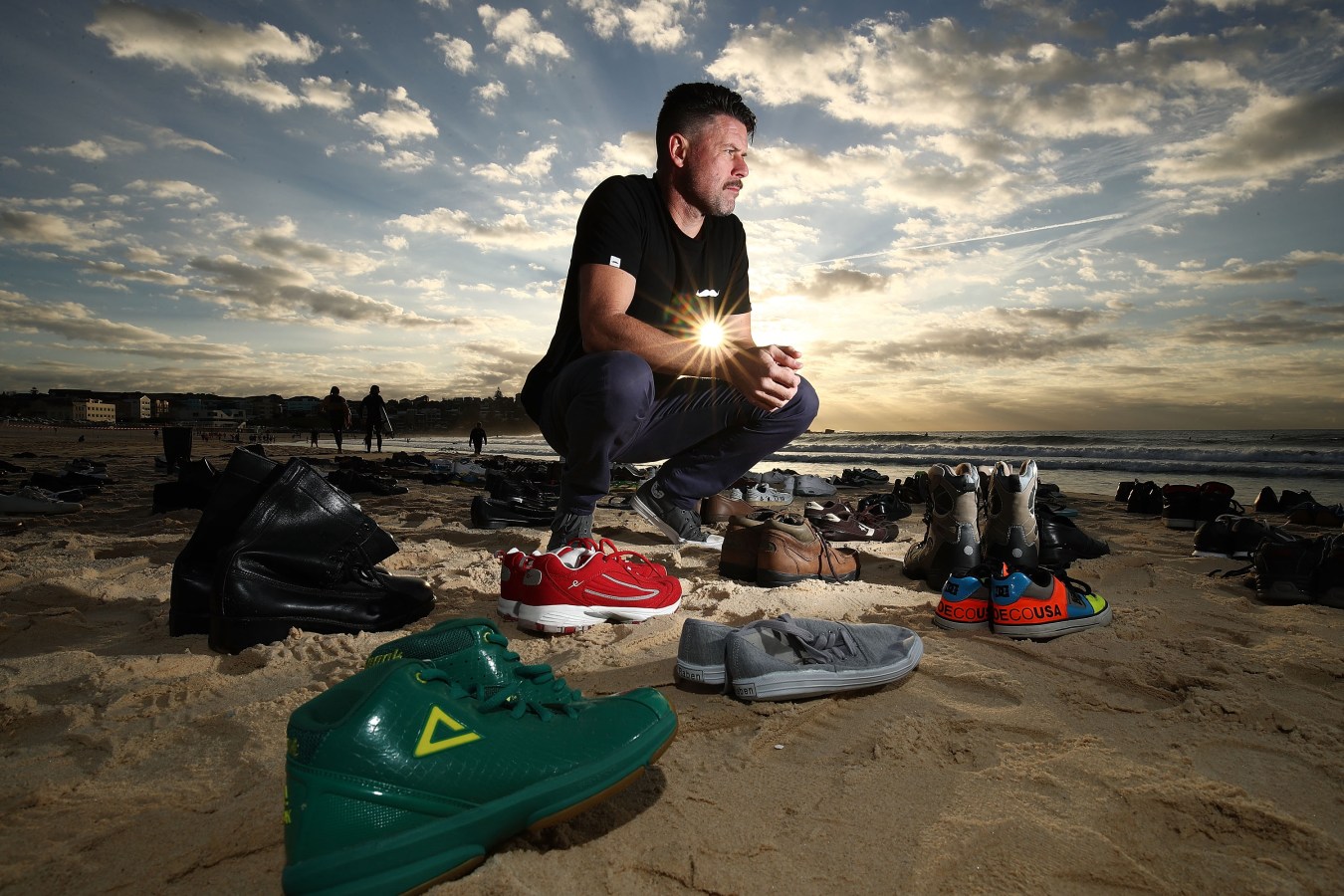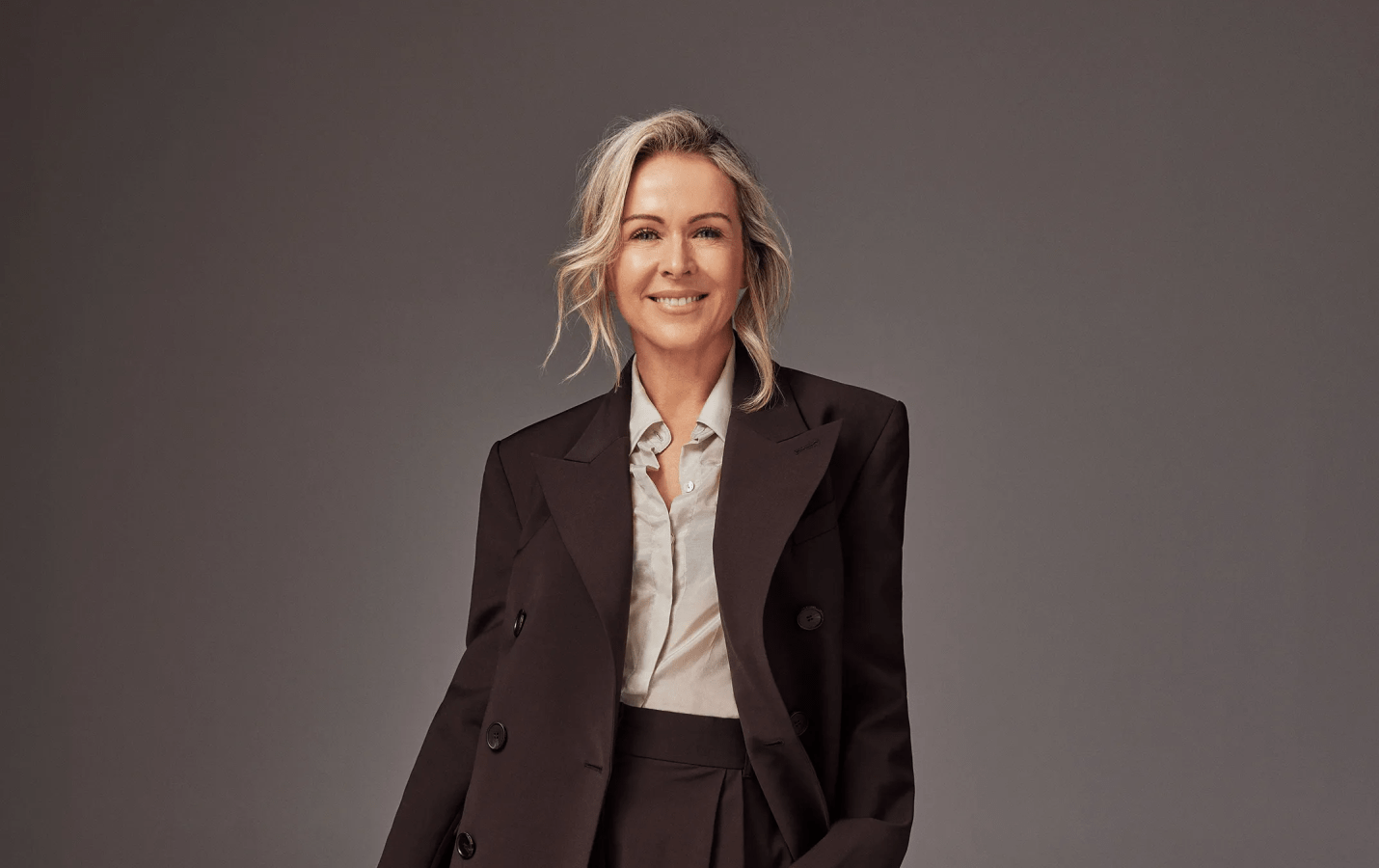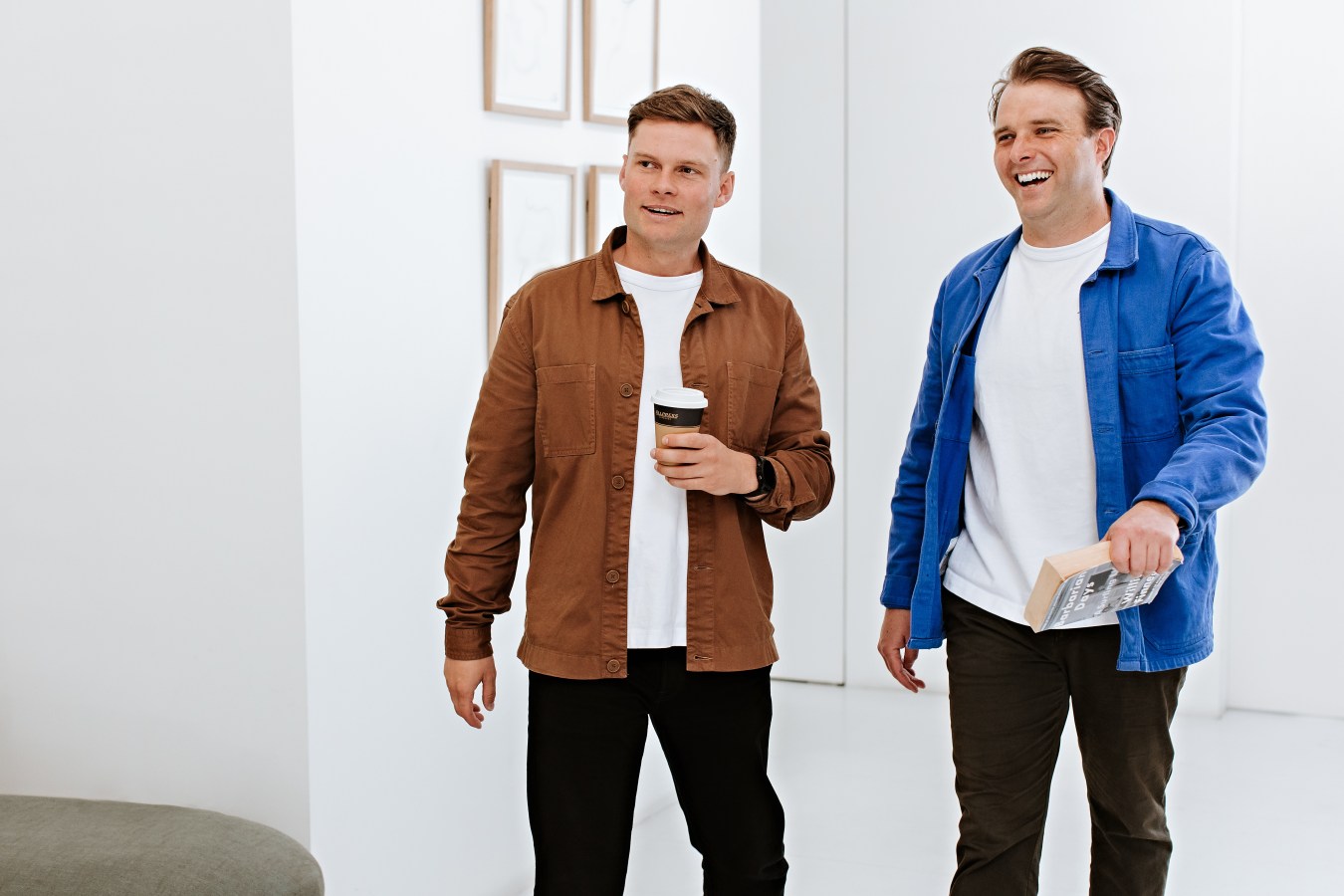Kristina Karlsson was 22 when she borrowed $3,000 from her partner, Paul, to launch iconic stationery brand, Kikki.K. But decades later, Karlsson faced every entrepreneur’s nightmare when Kikki.K entered administration not once, but twice. She reveals what got her through that testing time and how she emerged with a new business.
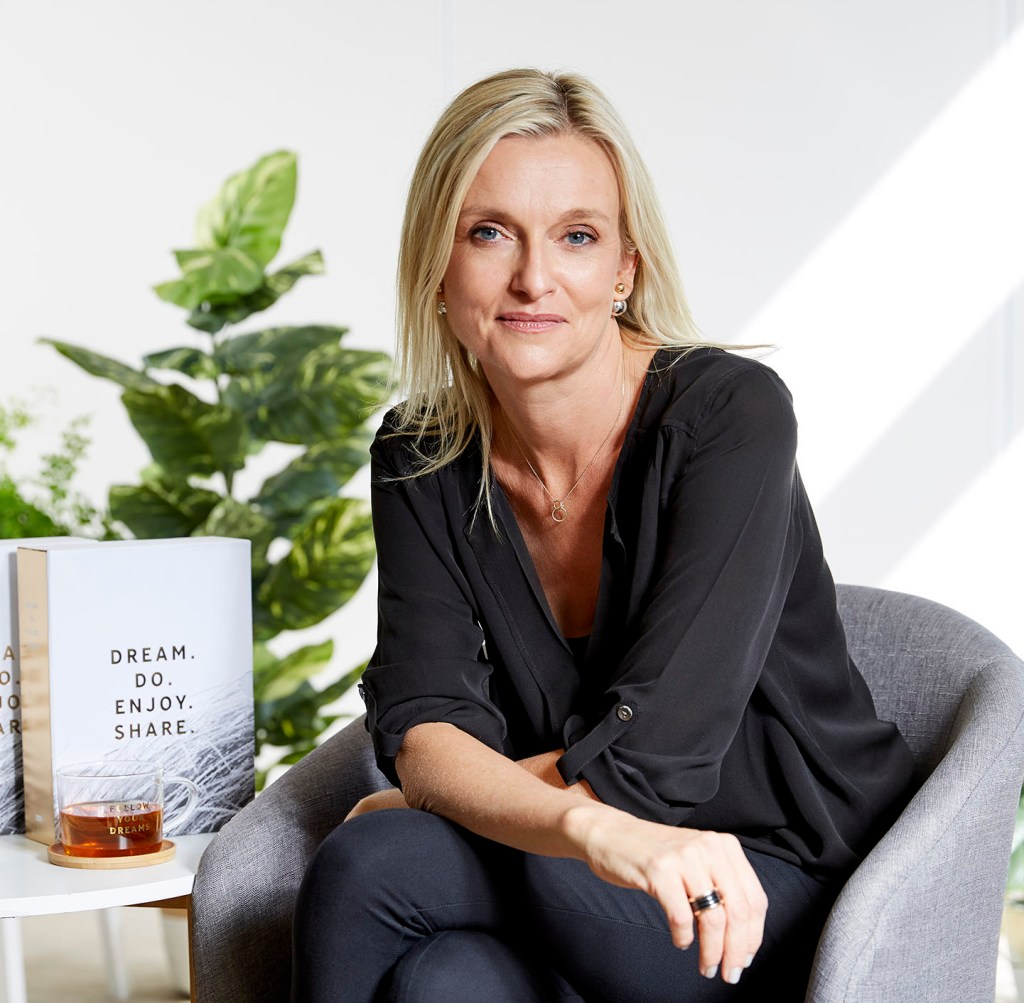
Kristina Karlsson joins a Zoom call from her home-office-slash-podcasting-room, framed by a large white cabinet containing hundreds of self-help and wellness books.
“I don’t know if obsessed is the right word, but I’m excited about always improving my life,” Karlsson says.
That’s a passion she shares with others these days through her new business Dream Life, which is a little bit of everything: there’s stationery (of course), a podcast, a book club, coaching and she engages in public speaking events. In fact, Karlsson will be joining Forbes Australia at its upcoming Women’s Summit on March 26.
Karlsson’s ‘excitement’ (but really, obsession) with self-improvement stems from her failures, she says, namely, that her iconic Swedish-inspired stationery business, Kikki.K, collapsed not once, but twice. “I feel as an entrepreneur, you don’t really hear a lot of people speak about their failures,” she says, adding, “especially not the big ones.”
The 3am ‘dream list’
Karlsson, who turned 50 last year, was just 22 when she moved to Australia from her native Sweden for love. Not long after that, she woke her partner, Paul Lacy, up at 3am with a question: “What am I going to do here?”
Lacy prompted Karlsson to write down a list of everything she wanted. Her goals were simple: she wanted to own a business with a connection to Sweden and she wanted to make $500 a week. “I was never driven by money, but I wanted to make enough to go home once a year, I wanted a beautiful home and to eat yummy food. Those were my dreams,” she says.
Inspired, Karlsson went out to set up a home office and get to work on nutting out a business idea. She recalls heading to David Jones, Myer, newsagents and Office Works, and was struck by what she found: “It was all so boring,” she says. “It was badly designed, bad quality and I realised, this is what I’m going to do.”
There were days when I couldn’t get out of bed. It took a couple of years to go through that. I’m in a good space now, but it’s important to know that there were days where I just really didn’t want to face anything.”
Kristina Karlsson, founder, Kikki.k
She borrowed $3,000 from Lacy, designed products she would want in her own home and sold direct to her girlfriends and their friends. From there, she began wholesaling. In 2001, she convinced Lacy to sell his house and open their first store, Kikki.K, in Melbourne Central. The company enjoyed a meteoric rise to success, reaping awards for its category innovation and customer service. At its peak, Kikki.K had 120 stores across Australia, New Zealand, Singapore, Hong Kong and the UK, and customers in over 150 countries.
Two collapses in two years
By 2016, the company sold a 20% stake to private equity firm, TDM Asset Manager, with a plan to expand further internationally, particularly throughout the UK. But the timing was off. The UK was in the midst of Brexit, with retail spending down and retail rents rising. Hong Kong was facing political unrest and bushfires were ravaging Christmas sales in Australia. By 2020, the company had annual sales of about $70 million and 450 staff across 65 stores and was fielding offers from a Chinese manufacturer.
“A Chinese manufacturer knocked on our door and wanted to buy us,” she says. “Private equity was ready to sell and so was I. It meant that I was going to keep a small shareholding and they would continue to expand but with a focus on China. That was kind of the perfect combination for us.”
Karlsson and Lacy ventured to Germany to seal the deal and the parties signed a term sheet. But then, COVID hit. “They withdrew the deal. The private equity that was controlling our business at the time – we were large shareholders with them, but they had the last say – they put us into administration. That was the saddest day of my life.”
The company, which owed $20 million to creditors at the time, was put into voluntary administration in March. But by June that year, it was saved by US-based lifestyle products company, Erin Condren Designs.
“Everything I had was in the business. The team basically worked day and night to turn the business around during COVID. And restarting a business from administration is hard as it is – and it’s worse when all your stores are closed and there are restrictions.”
But Erin Condren Designs, which took control in August 2020, got cold feet as a result of the pandemic, and pulled the plug. Enter: administration number two. At the time, the pair said the loss of revenue from the extended COVID closures took an “insurmountable” toll on the business, and said the administration was a direct consequence of the pandemic. The company was down to 36 stores, half of which were closed under COVID orders. Much of its 300 staff were stood down.
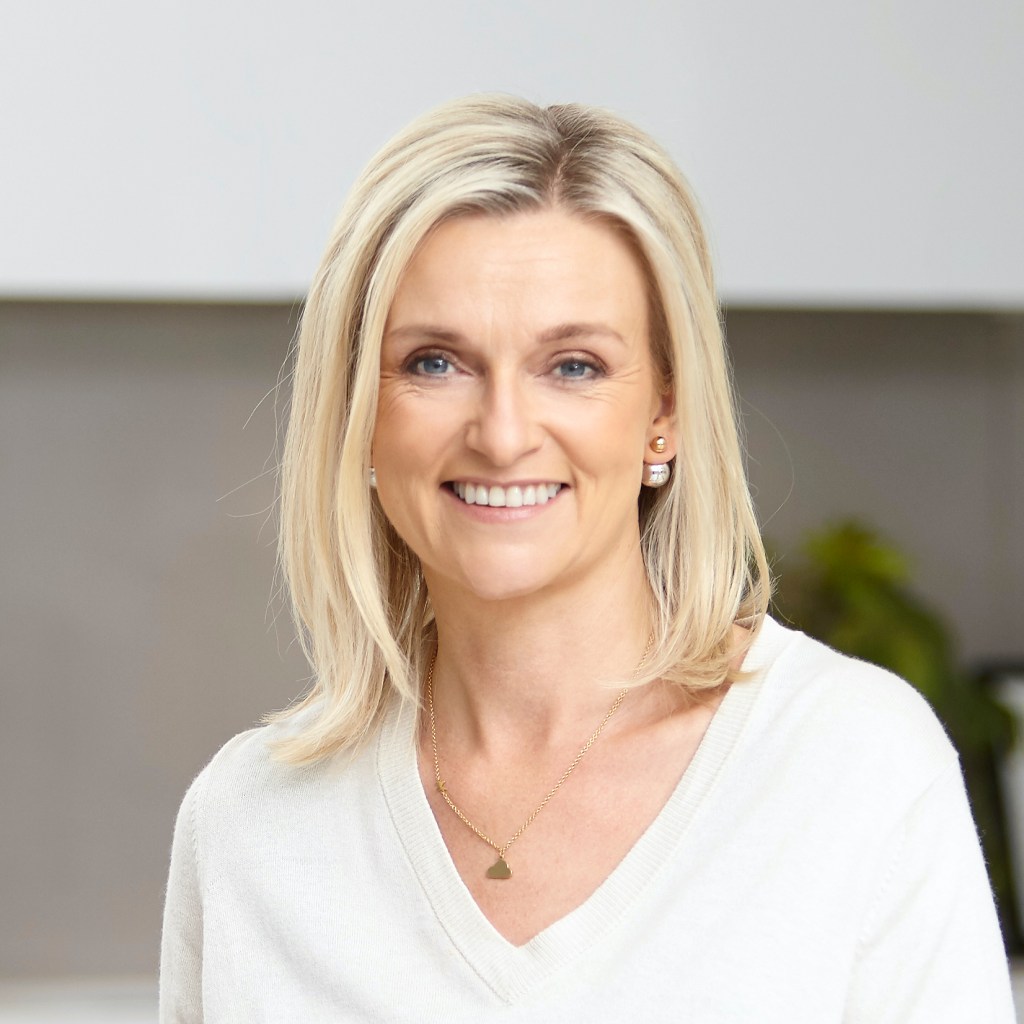
But Karlsson says that, second time around, she made a decision not to return to the business. Partly because it wasn’t an option for Karlsson to stay on, and partly because it was no longer a business she wanted to be a part of. She wanted to be in charge of her own life.
“I, as an entrepreneur, just felt I didn’t want to be in other people’s hands. It’s the last thing you want to go through, and the last resort. So, I decided to leave.” Kikki.K was bought out of voluntary administration in October 2021 by Brandbank Group, which owns other Australian brands like Seed Heritage, Commonry and Unison.
“We lost everything,” Karlsson says of her departure. “There were days when I couldn’t get out of bed. It took a couple of years to go through that. I’m in a good space now, but it’s important to know that there were days where I just really didn’t want to face anything.”
A new beginning
Through walking, practicing gratitude and journaling, Karlsson says she managed to propel herself into her new venture. Now, her dream is to inspire 101 million people to write down their dreams and chase them.
“When I was really lost, I wrote down a few simple dreams. I think, if I can do this, anyone can.”
Dream Life has a different business model to Kikki.K – of course, there are the different business divisions, but as far as stationery goes, Karlsson’s gone down the route of printing on demand. That’s been a life-saver financially, it’s sustainable and Karlsson says there’s freedom in innovating quickly. It’s also global first: it’s online-only, and ships all over the world, but aims to establish printers in the US, UK, Europe and Asia to save on shipping costs.
“I can have an idea in the morning and it be out this afternoon. It’s unbelievable how exciting that is, compared to retail where you plan at least six and sometimes 12 months in advance. I used to debate colours for months, because you had to get it right when printing so much. But now, I can put up five colours and if they don’t sell I can take them down.”
Karlsson’s book, Your Dream Life Starts Here, which came out in 2018, has so far sold about 100,000 copies, and her podcast has 250 episodes and reached over 3 million downloads.
“I know I can grow this to be a multimillion-dollar business and a global brand, again.”
Kristina Karlsson will speak live at the Forbes Australia Women’s Summit on 26 March. Tap here to secure your ticket.
Look back on the week that was with hand-picked articles from Australia and around the world. Sign up to the Forbes Australia newsletter here or become a member here.
